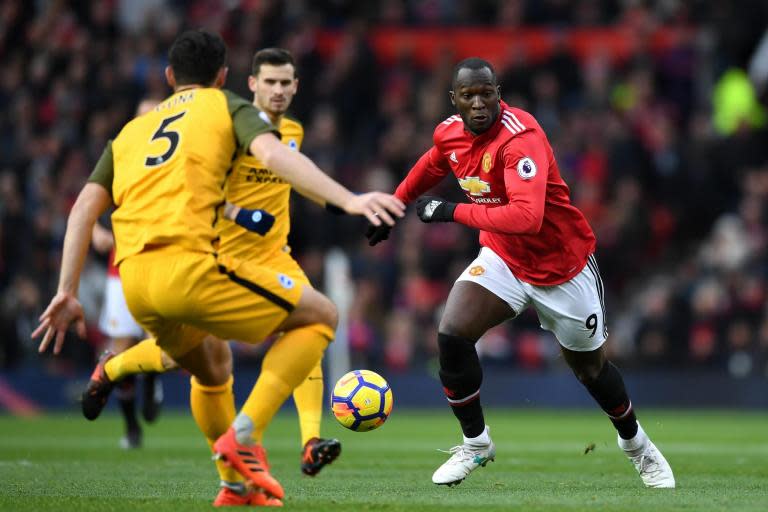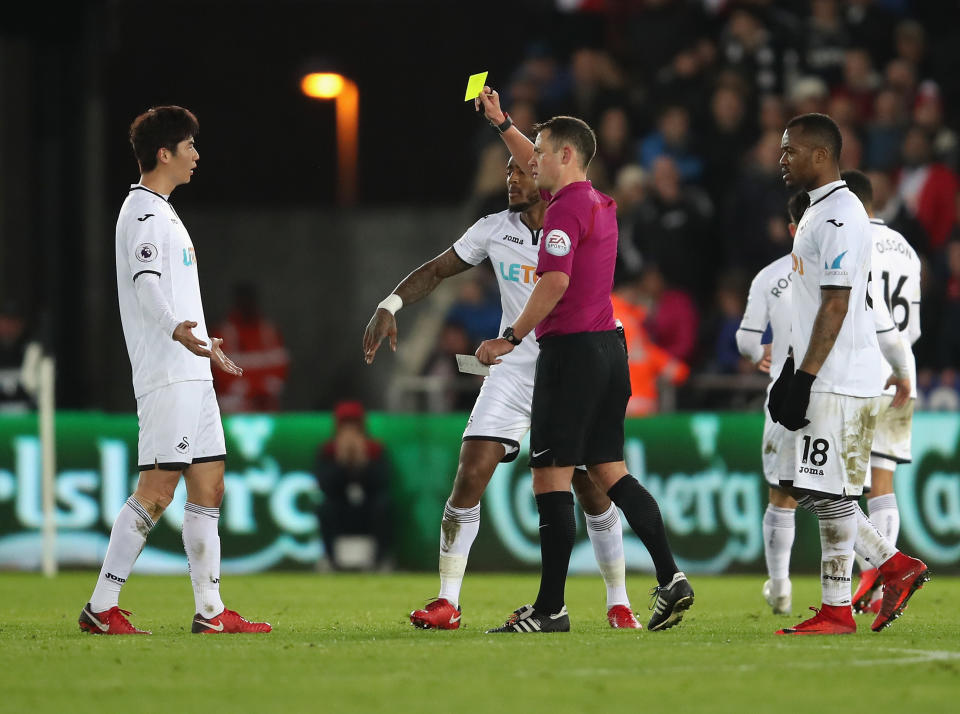Ref pushing and groin kicking not as bad as diving - just ask the FA

Having seen his side lose 3-1 at Manchester City earlier this month with the game hinging on an offside goal, Arsene Wenger had a lot to say about refereeing standards in the Premier League. “I feel they don’t work enough,” Wenger said of the top flight’s officials. “The referees don’t work enough because the level drops every season at the moment and, overall, it’s unacceptable.”
Referees have certainly come in for sustained and acute criticism over the last few seasons, seemingly even more so than usual. That’s perhaps why the FA have upped their efforts to support refs with retrospective action, not only for missed incidents but also through new rules concerning ‘Successful Deception of a Match Official’.
READ MORE: Gossip – Barcelona want Eriksen and more
Last week, Oumar Niasse became the first player to receive a retroactive ban for diving, this after a controversial tumble which secured Everton a 2-2 draw with Crystal Palace. That incident earned Niasse a two-match suspension, which saw Everton’s top scorer miss their 4-1 defeat to Southampton and which will keep him on the sidelines for their clash with West Ham in the midweek.
While most people seem to feel that Niasse was deserving of punishment, several incidents this weekend have thrown up questions about relative inconsistencies. First up, Romelu Lukaku has just avoided a retrospective three-match ban for kicking out at Brighton’s Gaetan Bong, this after a three-man panel of ex-referees failed to agree it was a red-card offence.
There was certainly room for interpretation in the incident, with Lukaku lashing out at Bong but not necessarily making significant contact with him. There are Everton fans who would claim that the incident involving Niasse was similarly ambiguous – so why did one lead to consensus on a ban and the other end in disagreement?
READ MORE: Mourinho steers clear of debate over Lukaku corner controversy
With the written reasons from the Niasse verdict revealing that referee Anthony Taylor was satisfied he had not been deceived by the Everton striker, the waters are muddied even further. If the two incidents prove anything, it’s that retrospective action is as subjective as decisions made in a split second on the pitch.

Writing in his column for The Daily Mail, former Premier League referee Graham Poll said of the Lukaku incident: “[He] must face a three-match ban… it was a violent act which would have resulted in a red card had referee Neil Swarbrick seen it.” If Lukaku really did get away with violence despite the intervention of a three-man disciplinary panel, Everton fans might have reason to compare it to the treatment of Niasse and feel aggrieved.
Then there is the lenient punishment dished out to Swansea’s Ki Sung-yueng on Saturday, with the South Korean midfielder receiving only a caution for shoving referee Stuart Attwell. Having been disciplined on the spot, there could be no retrospective action against Ki.
Paolo di Canio’s 11-match ban anyone?
READ MORE: Clement upbeat despite dour Bournemouth draw
Attwell may have judged Ki to have shoved him accidentally in a moment of madness, but the fact remains that players have received lengthy bans for similar incidents. That puts both the Niasse and Lukaku decisions in perspective – with or without the option of retroactive sanctions, inconsistencies are inevitable. There is always going to be more work to do for Premier League referees.


